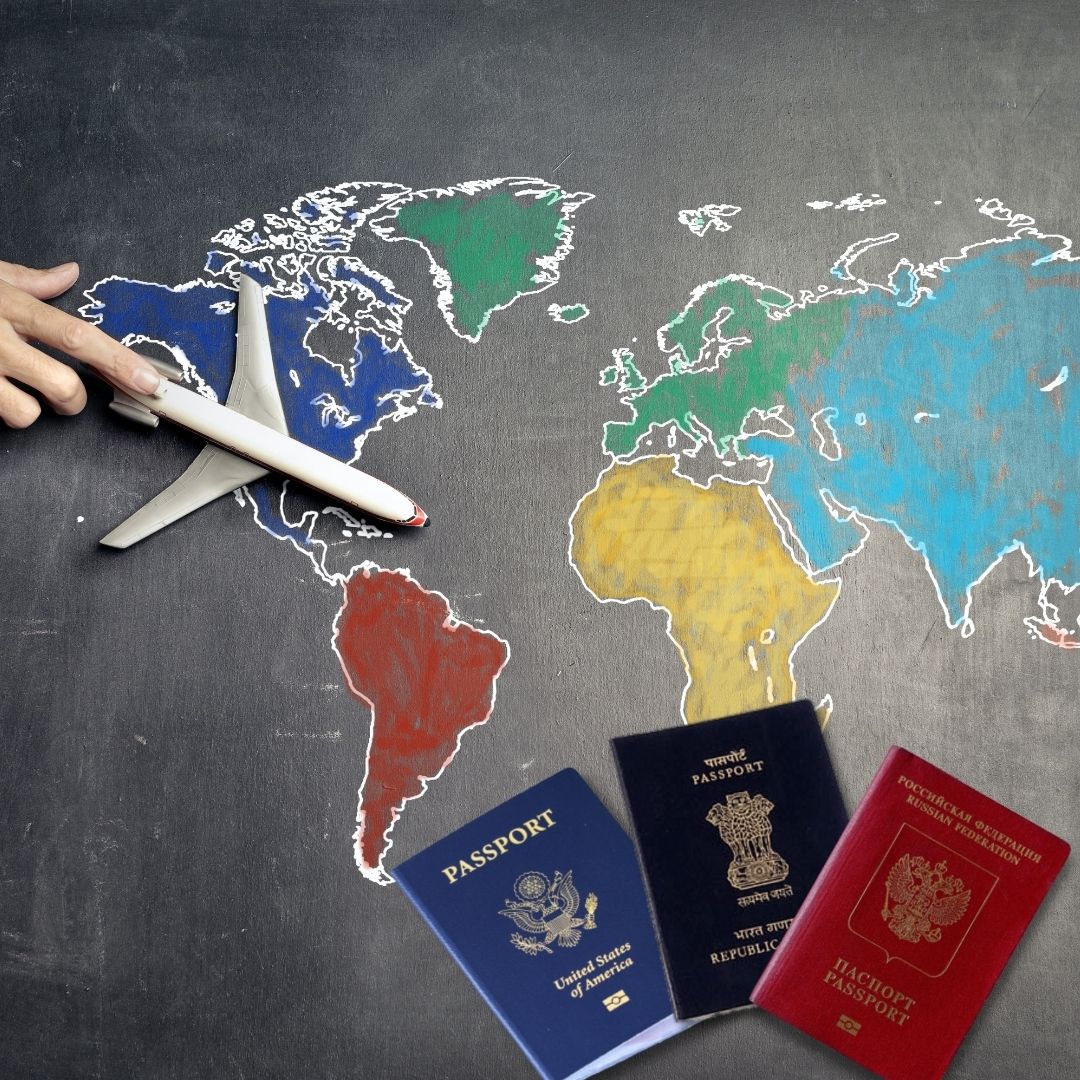Travel Apartheid: As Wealthy Nations Get More Travel Access, World Looks At Glaring Divide
Writer: Simran Sharma
With words, life seem like poetry. They seem to liberate and confine me at the same time. A passionate writer and a trainee Journalist by profession.
Others/World, 14 Jan 2022 11:24 AM GMT
Editor : Snehadri Sarkar |
While he is a massive sports fanatic, his interest also lies in mainstream news and nitpicking trending and less talked about everyday issues.
Creatives : Snehadri Sarkar
While he is a massive sports fanatic, his interest also lies in mainstream news and nitpicking trending and less talked about everyday issues.
The passport index has put out the reality of growing economic differences and their impact on global mobility. With the ongoing pandemic, these barriers have further widened this gap.
With the results of the Henley Passport Index, 2022, the world is staring at a glaring example of a deep divide in international mobility. Japan and Singapore are topping the charts, as they have the freedom to travel to 192 countries without visas, and Afghanistan stands at the bottom end of the table.
Research done by Henley and Partners shows that wealthier nations enjoy access to many countries. On the contrary, nations which fall under the low-income criterion lack this freedom. Issues about security and overstaying deem these nations as high-risk.
What Is Travel Apartheid?
With the emergence of the Omicron variant, nations like the United Kingdom, the United States of America and many others were quick to impose travel bans on African nations. These discriminatory actions against African countries were termed 'Travel Apartheid' by United Nations Chief Antonio Guterres. This move faced a lot of backlash from world leaders.
"We have the instruments to have safe travel. Let's use those instruments to avoid this kind of, allow me to say, travel apartheid, which I think is unacceptable."
He further added that these bans isolate just one country or region and are not even effective.
Inequality In Global Mobility
The passport index has put out the reality of growing economic differences and their impact on global mobility. People from low-income countries have not been given the freedom to travel to many nations for many years. With Covid, these barriers to entry into many countries have further widened this gap.
After Japan and Singapore, Germany and South Korea are on the 2nd spot, with passport holders able to access 190 destinations visa-free. At the same time, Finland, Italy, Luxembourg, and Spain share 3rd place, with a score of 189. The US and the UK passports are at 6th position with a score of 186.
At the bottom of the chart are Afghanistan, Iraq and Syria, whose citizens can access fewer than 30 countries without visas. At the same time, nations like Cameroon, Angola and Laos can go to 50 countries without a visa. The data shows that global mobility has clearly distinguished the 'have' and 'have-nots'.
Where Are India And Neighbours?
India's passport position has risen from 90 in 2020 to 84 in 2022 as per the Index, giving it free travel access to 59 countries from this year. China stands at 64th rank with free visa entry in 80 countries. Pakistan, Nepal, Srilanka, Bangladesh, and Nepal stand at 108,105, 102 and 103. Bhutan and Myanmar are at 90 and 97 positions, allowing them to travel visa-free to 53 and 46 nations, respectively.
What Experts Have To Say
In a press release by Henley and Partners, Professor Mehari Taddele Maru from the Migration Policy Centre pointed out the global south's willingness to respond to changing circumstances is not always shared by countries in the global north. "Expensive requirements associated with international travel institutionalize inequality and discrimination. Covid-19 and its interplay with instability and inequality have highlighted and exacerbated the shocking disparity in international mobility between wealthy developed nations and their poorer counterparts."
Also Read: Tamil Nadu's Coconut Vendor Donates ₹1 Lakh To Government School
 All section
All section














